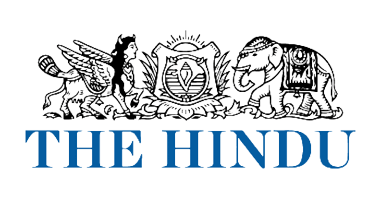THE HINDU 06.05.2025
GS Paper 1: Indian Society, History, Geography
1. Gender Disparity in India’s Workforce
News Context: An editorial discusses the economic cost of India’s low female labour force participation rate.
GS1 Relevance:
- Society: Role of women and women’s organizations, population and associated issues, poverty and developmental issues.
- Issues of Social Empowerment.
In-Depth Analysis:
- India’s female labour force participation rate is around 24%, far below the global average.
- Cultural, safety, and infrastructural barriers restrict women’s entry into formal employment.
- Implication: Slower demographic dividend realization and reduced GDP growth potential.
- Way Forward:
- Gender-inclusive policies (e.g., safe public transport, maternity benefits).
- Incentivizing corporates for gender parity.
- Education and skilling programs tailored to market needs.
GS Paper 2: Polity, Governance, International Relations
1. Election Commission’s Preparedness
News Context: The EC has issued guidelines and addressed concerns regarding model code violations.
GS2 Relevance:
- Constitutional Bodies: Structure, organization, and functioning of Election Commission.
- Governance: Transparency and accountability, role of civil services.
In-Depth Analysis:
- EC’s proactive engagement is vital for free and fair elections, particularly during the ongoing Lok Sabha polls.
- Model Code of Conduct (MCC): Not legally binding but moral force; relies on voluntary compliance.
- Challenges: Hate speech, fake news, and communal polarization.
- Reform Suggestions:
- Statutory backing for MCC.
- Stronger digital campaign monitoring.
- Coordination with platforms and civil society.
2. India-Nepal Relations
News Context: India and Nepal signed an energy export agreement involving hydropower.
GS2 Relevance:
- Bilateral Relations: India and its neighborhood—relations with Nepal.
- International Agreements and Institutions.
In-Depth Analysis:
- India to purchase 10,000 MW of electricity from Nepal over 10 years.
- Promotes regional energy integration and supports India’s clean energy goals.
- Enhances strategic trust post boundary disputes.
- Strategic Importance:
- Counters Chinese influence in Nepal.
- Regional interdependence via BBIN (Bangladesh, Bhutan, India, Nepal) corridor.
GS Paper 3: Economy, Security, Environment
1. RBI’s Monetary Policy Decisions
News Context: RBI holds repo rate amid concerns over inflation and global uncertainties.
GS3 Relevance:
- Indian Economy: Monetary policy, growth-inflation dynamics.
- Inclusive Growth and Budgeting.
In-Depth Analysis:
- Repo rate unchanged at 6.5% to ensure liquidity while containing inflation.
- Inflation pressure persists from food prices and global crude oil volatility.
- Policy Tools:
- Repo rate, CRR, SLR.
- RBI’s dual mandate: inflation targeting and financial stability.
- Macro Implication: Balancing economic recovery with price stability.
2. Heatwave & Urban Infrastructure
News Context: Heatwave grips Delhi; reports of health impact and power grid strain.
GS3 Relevance:
- Disaster and Environmental Management.
- Infrastructure and Urbanization.
In-Depth Analysis:
- Urban heat island effect exacerbates temperature rise.
- Vulnerable groups: elderly, outdoor workers, low-income households.
- Stress on water supply and electricity distribution systems.
- Solutions:
- Heat Action Plans (HAPs), passive cooling infrastructure.
- Long-term climate-resilient urban planning.
- Coordination between NDMA, State Disaster Management Authorities (SDMAs), and local bodies.
GS Paper 4: Ethics, Integrity and Aptitude
1. Ethical Governance in Election Conduct
News Context: Editorial on ethical campaigning and political accountability.
GS4 Relevance:
- Ethical Issues in Governance: Role of ethical conduct in elections.
- Code of Conduct and Integrity in Public Life.
In-Depth Analysis:
- Need for value-based leadership and issue-focused electoral discourse.
- Avoidance of hate speech and personal attacks.
- Moral Responsibility:
- Leaders must uphold constitutional values and not just legal compliance.
- EC should act as moral guardian during polls.



